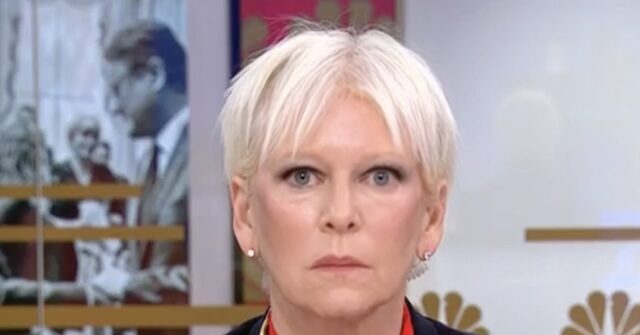On a recent appearance on MSNBC’s “Morning Joe,” Joanna Coles of The Daily Beast raised eyebrows with her assertion that former President Donald Trump might be microdosing psychedelic substances. Co-host Jonathan Lemire introduced the discussion, highlighting the bizarre nature of Trump’s recent behavior and questioning its implications for his political campaign. Coles compared Trump’s actions to those of authoritarian figures like Hungary’s Viktor Orbán, noting a troubling trend in the former president’s rhetoric and behavior that she characterized as undemocratic. Her observations sparked a deeper discussion about the state of his campaign and the perception of his mental state among both supporters and detractors.
Coles emphasized her incredulity at Trump’s recent demeanor, suggesting that his claims of sobriety might not fully reflect his state of mind. She likened his erratic behavior to that of someone under the influence, suggesting that he may even be microdosing similar to Elon Musk, a well-known advocate for such practices. Coles pointed out the inconsistencies in Trump’s statements, where he alternately labeled Democrats as communists and fascists, reflecting a disjointed communication style that she believes alienates undecided voters.
Moreover, Coles asserted that Trump’s campaign appears frantic and unfocused, akin to someone nearing the end of a long journey. She expressed concern that he is losing track of not just his messaging but his overarching narrative. This disconnect could prove damaging as he tries to appeal to a broader electorate. Coles posited that if Trump is exhausted from the campaign, it is no surprise, as the political landscape is equally weary from the ongoing conflict and drama that characterize his political approach.
In her analysis, Coles also touched upon a broader theme regarding America’s identity as a nation. She argued that immigrants are drawn to the United States not only for economic opportunities but also for its democratic ideals, contrasting this with the authoritarian countries many are fleeing from. This notion, she indicated, should serve as a reminder of what America stands for on the global stage—a commitment to democracy and freedom that, according to her, is being undermined by figures like Trump.
Lemire interjected to clarify that there was no evidence supporting Coles’ claim about Trump’s potential use of psychedelics, highlighting the importance of grounding such discussions in verifiable facts. Nevertheless, Coles maintained that even without concrete evidence, Trump’s behavior raises legitimate questions about his mental fitness and the implications of his leadership style. This ongoing dialogue serves not just to scrutinize Trump personally but to reflect on the state of American politics as a whole.
The exchange encapsulated the tensions within the current political atmosphere, where rhetoric often strays from substantiated claims and verifiable facts. As Coles and Lemire navigated the implications of Trump’s behavior, they also underscored the need for a showcase of democratic principles amidst rising populism and authoritarian rhetoric, galvanizing a discussion that resonates deeply within the context of the upcoming elections.

